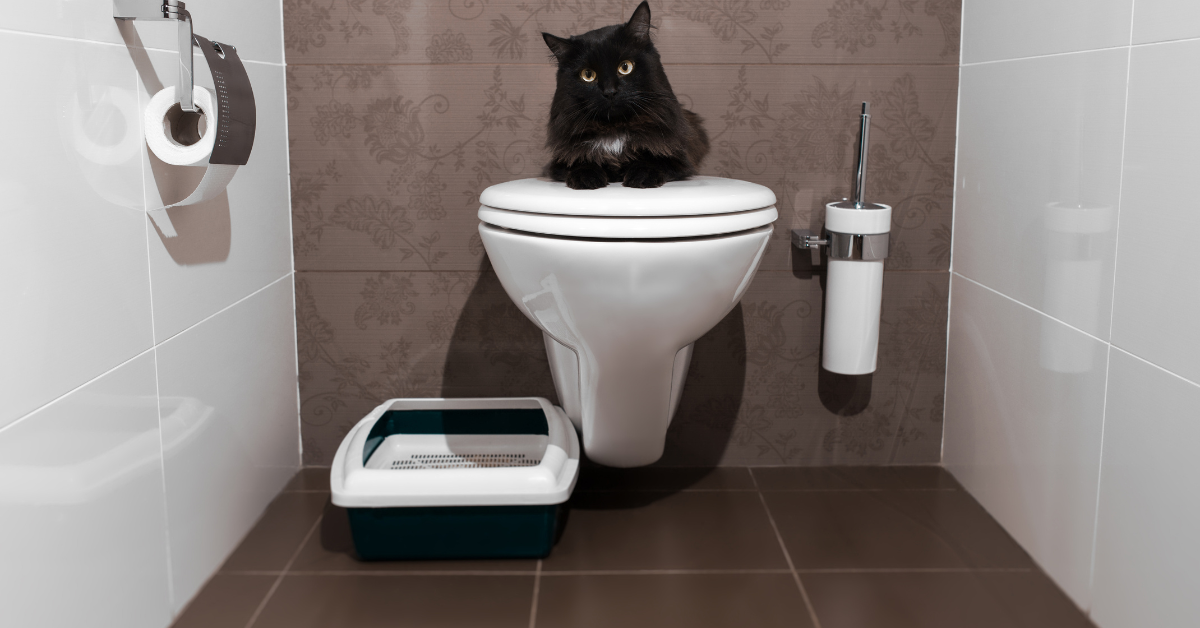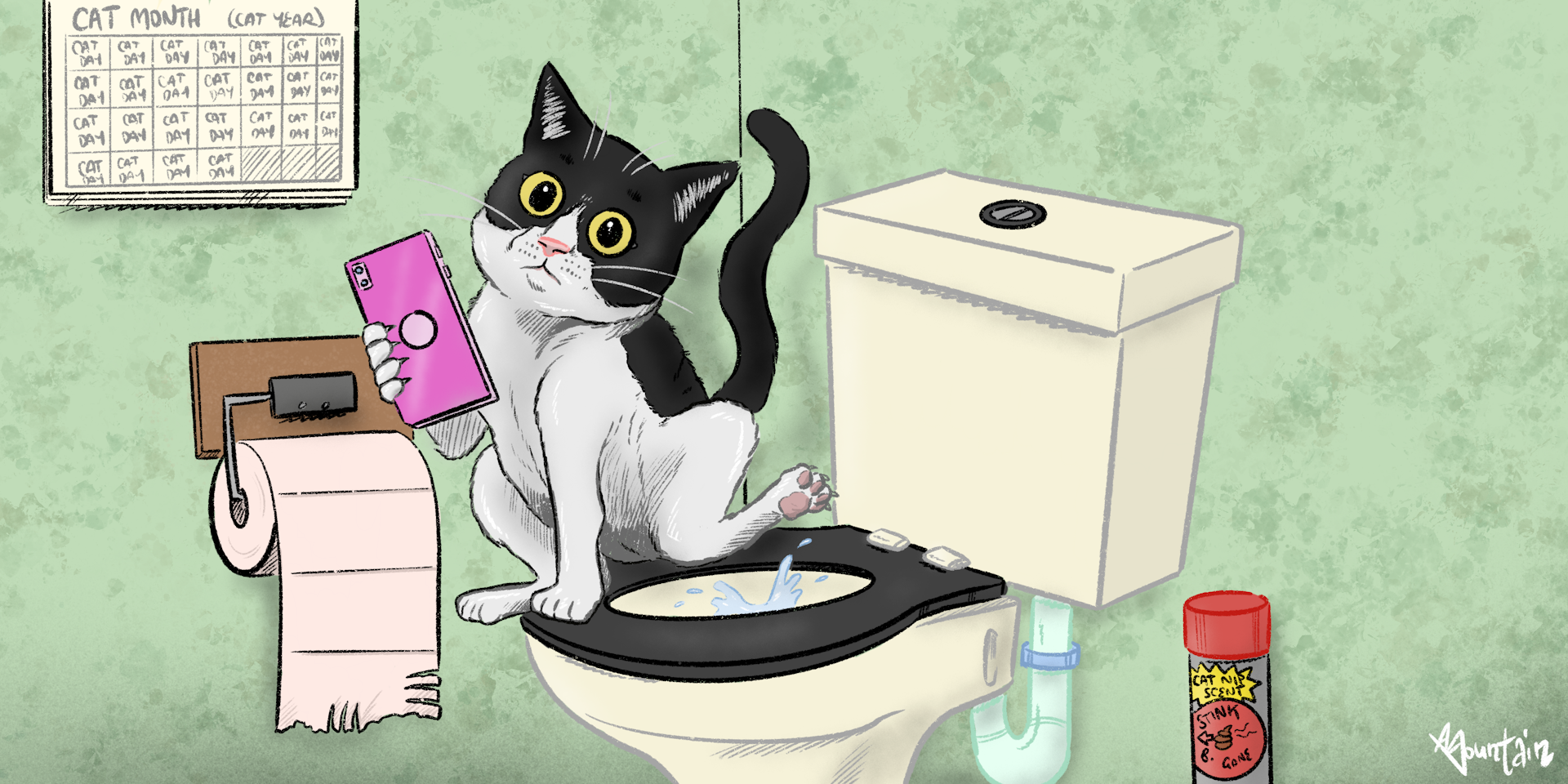The Risks of Animal Waste in the Toilet
The Risks of Animal Waste in the Toilet
Blog Article
Were you in search of related information on 4 Reasons Why Dog Poop Cleanup is Important?

When it pertains to getting rid of waste, especially animal waste, many individuals often resort to the practical choice of flushing it down the commode. However, this apparently simple service can have major consequences for the setting and public health. In this post, we'll explore why flushing pet waste down the bathroom is a bad concept and supply alternative approaches for appropriate disposal.
Intro
Appropriate garbage disposal is critical for preserving ecological sustainability and public health. While it may seem safe to purge animal waste down the toilet, it can bring about various concerns, both for the atmosphere and human health.
Dangers of flushing pet waste
Environmental effect
Purging animal waste presents hazardous microorganisms and microorganisms right into waterways, which can adversely impact aquatic ecological communities. These microorganisms can pollute water sources and injury aquatic life, interrupting delicate ecological communities.
Public health concerns
Pet waste has dangerous microorganisms such as E. coli and Salmonella, which can position serious health and wellness risks to people. Purging animal waste down the toilet can contaminate water materials, causing the spread of conditions and infections.
Alternatives to flushing
As opposed to flushing animal waste down the bathroom, there are several alternative disposal techniques that are a lot more eco-friendly and hygienic.
Composting
Composting animal waste is an environmentally friendly way to get rid of it. By composting, raw material is broken down right into nutrient-rich dirt, which can be made use of to fertilize gardens and plants.
Garbage dump disposal
Dealing with animal waste in a garbage dump is one more choice. While not as environmentally friendly as composting, it is a safer option to flushing, as it prevents the contamination of water resources.
Pet dog waste disposal systems
There are customized animal waste disposal systems offered that safely and hygienically deal with pet waste. These systems often utilize enzymes to break down waste and remove odors.
Actions to appropriate animal waste disposal
To guarantee correct disposal of animal waste, follow these steps:
Scooping and landing waste
Regularly scoop and bag pet waste making use of eco-friendly bags. This prevents waste from contaminating the setting.
Making use of designated waste bins
Dispose of bagged pet waste in assigned waste containers, such as garden compost containers or landfill containers. Avoid flushing it down the toilet whatsoever costs.
Cleaning can and pet dog locations frequently
Routinely tidy litter boxes and pet locations to avoid the buildup of waste and bacteria. Use pet-safe cleansing items to keep health.
Benefits of correct disposal approaches
Taking on appropriate disposal approaches for animal waste offers a number of benefits:
Minimized environmental pollution
Proper disposal techniques reduce the threat of environmental pollution, securing waterways and ecological communities from contamination
Reduced risk of water contamination.
By staying clear of flushing animal waste down the toilet, the danger of water contamination is significantly minimized, safeguarding public health.
Enhanced hygiene and hygiene
Correct disposal methods advertise better cleanliness and health, developing a much safer atmosphere for both human beings and animals.
Verdict
In conclusion, flushing animal waste down the commode is dangerous to the environment and public health. By taking on alternate disposal approaches and following appropriate waste management techniques, we can minimize the unfavorable influence of animal waste and contribute to a cleaner, much healthier earth.
What To Do With Dog Poo – The Do's And Don'ts Of Disposing Of Faeces
Dog poo bins
Some councils provide dedicated dog waste bins in popular dog-walking areas that can take dog poo that has been bagged but you can legally dispose of dog waste in any public litter bin, as long as it is securely bagged. This also applies to your wheelie bin at home.
Do not flush
Water companies do not recommend flushing dog faeces down the toilet because certain parasites can survive the water processing treatment and are potentially harmful to humans. You should also never consider flushing dog poo that has been bagged down the toilet as the bags will not break down and instead create severe blockages in the sewage system.
In the woods
The Forestry Commission promotes a ‘stick and flick’ method for dealing with waste in the woods. This means finding a stick and using it to flick any poo from off the path so that it is out of the way of other walkers. You could also bury it as long as it is not in an area where there might be livestock.
Livestock
Parasites found in dog poo can be transmitted to livestock if they inadvertently eat infected faeces that has been left on grazing land. This could result in the death of sheep or abortion in cattle so you should always make sure you pick up your dog’s waste in fields where livestock could be present.

Routinely tidy litter boxes and pet locations to avoid the buildup of waste and bacteria. Use pet-safe cleansing items to keep health.
Benefits of correct disposal approaches
Taking on appropriate disposal approaches for animal waste offers a number of benefits:
Minimized environmental pollution
Proper disposal techniques reduce the threat of environmental pollution, securing waterways and ecological communities from contamination
Reduced risk of water contamination.
By staying clear of flushing animal waste down the toilet, the danger of water contamination is significantly minimized, safeguarding public health.
Enhanced hygiene and hygiene
Correct disposal methods advertise better cleanliness and health, developing a much safer atmosphere for both human beings and animals.
Verdict
In conclusion, flushing animal waste down the commode is dangerous to the environment and public health. By taking on alternate disposal approaches and following appropriate waste management techniques, we can minimize the unfavorable influence of animal waste and contribute to a cleaner, much healthier earth.
What To Do With Dog Poo – The Do's And Don'ts Of Disposing Of Faeces
Dog poo bins
Some councils provide dedicated dog waste bins in popular dog-walking areas that can take dog poo that has been bagged but you can legally dispose of dog waste in any public litter bin, as long as it is securely bagged. This also applies to your wheelie bin at home.
Do not flush
Water companies do not recommend flushing dog faeces down the toilet because certain parasites can survive the water processing treatment and are potentially harmful to humans. You should also never consider flushing dog poo that has been bagged down the toilet as the bags will not break down and instead create severe blockages in the sewage system.
In the woods
The Forestry Commission promotes a ‘stick and flick’ method for dealing with waste in the woods. This means finding a stick and using it to flick any poo from off the path so that it is out of the way of other walkers. You could also bury it as long as it is not in an area where there might be livestock.
Livestock
Parasites found in dog poo can be transmitted to livestock if they inadvertently eat infected faeces that has been left on grazing land. This could result in the death of sheep or abortion in cattle so you should always make sure you pick up your dog’s waste in fields where livestock could be present.

I discovered that review about 10 Things You Should Never Flush Down The Toilet while doing a search on the web. Enjoyed reading our blog posting? Please share it. Let someone else check it out. Many thanks for your time invested reading it.
Click Here Report this page